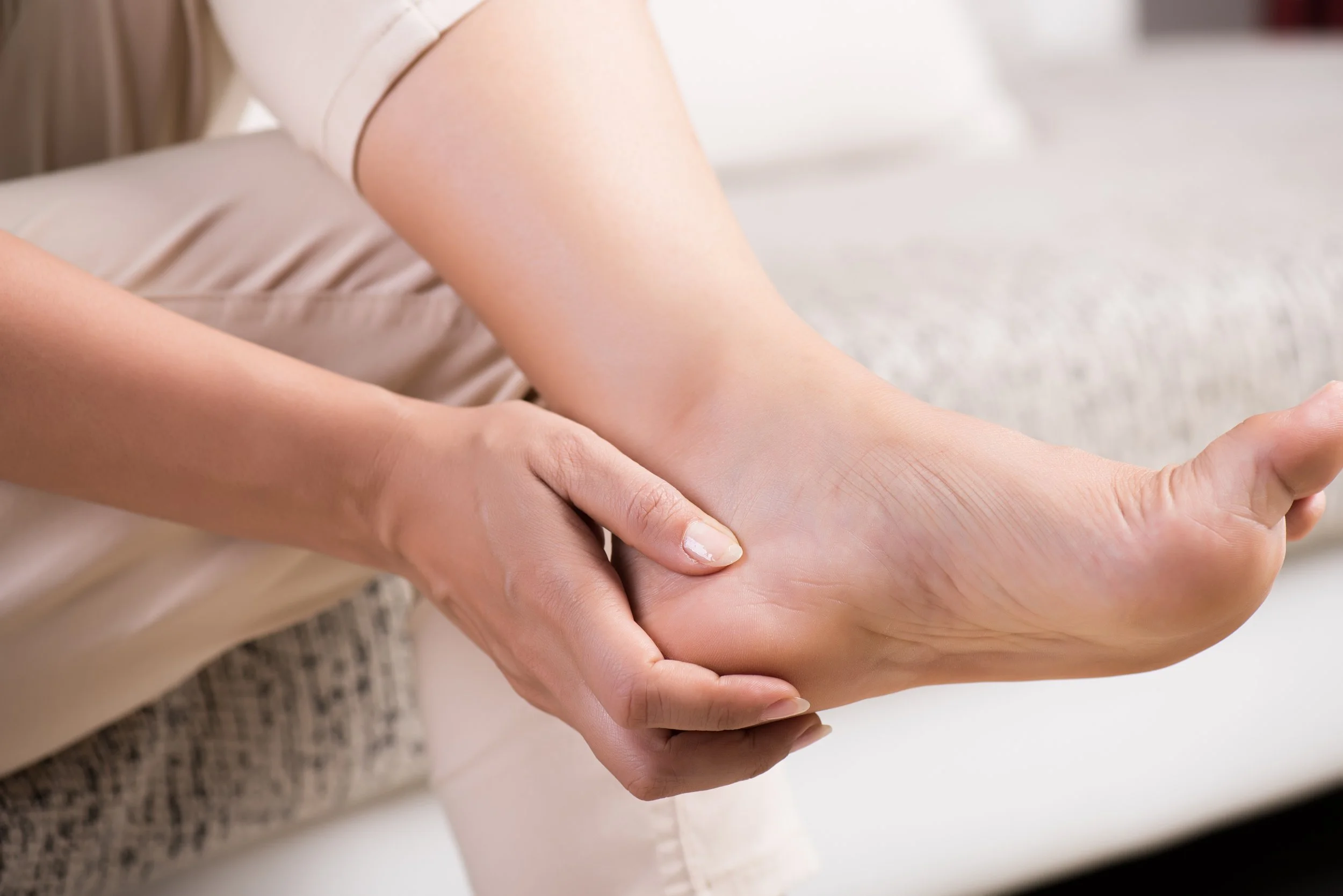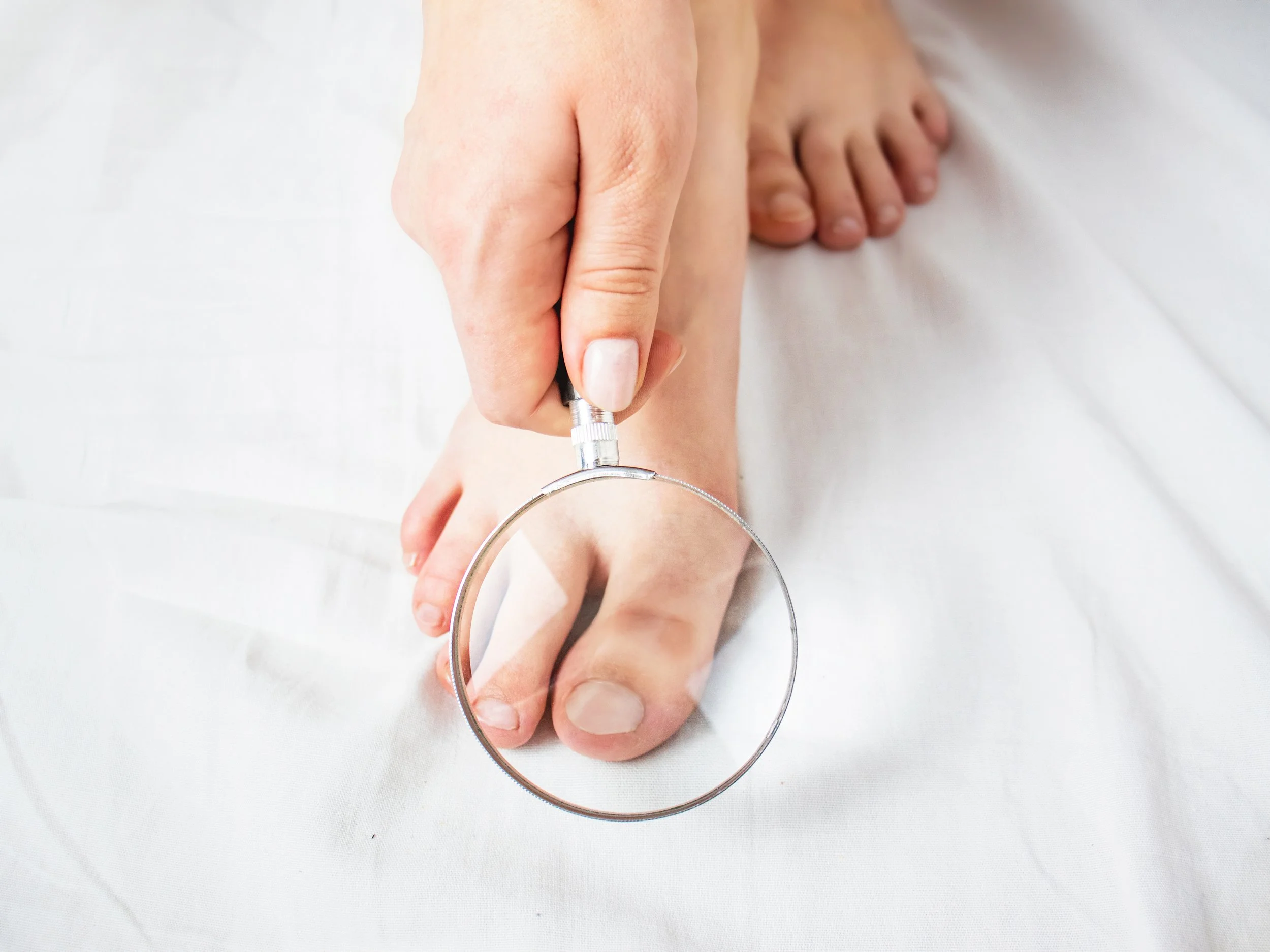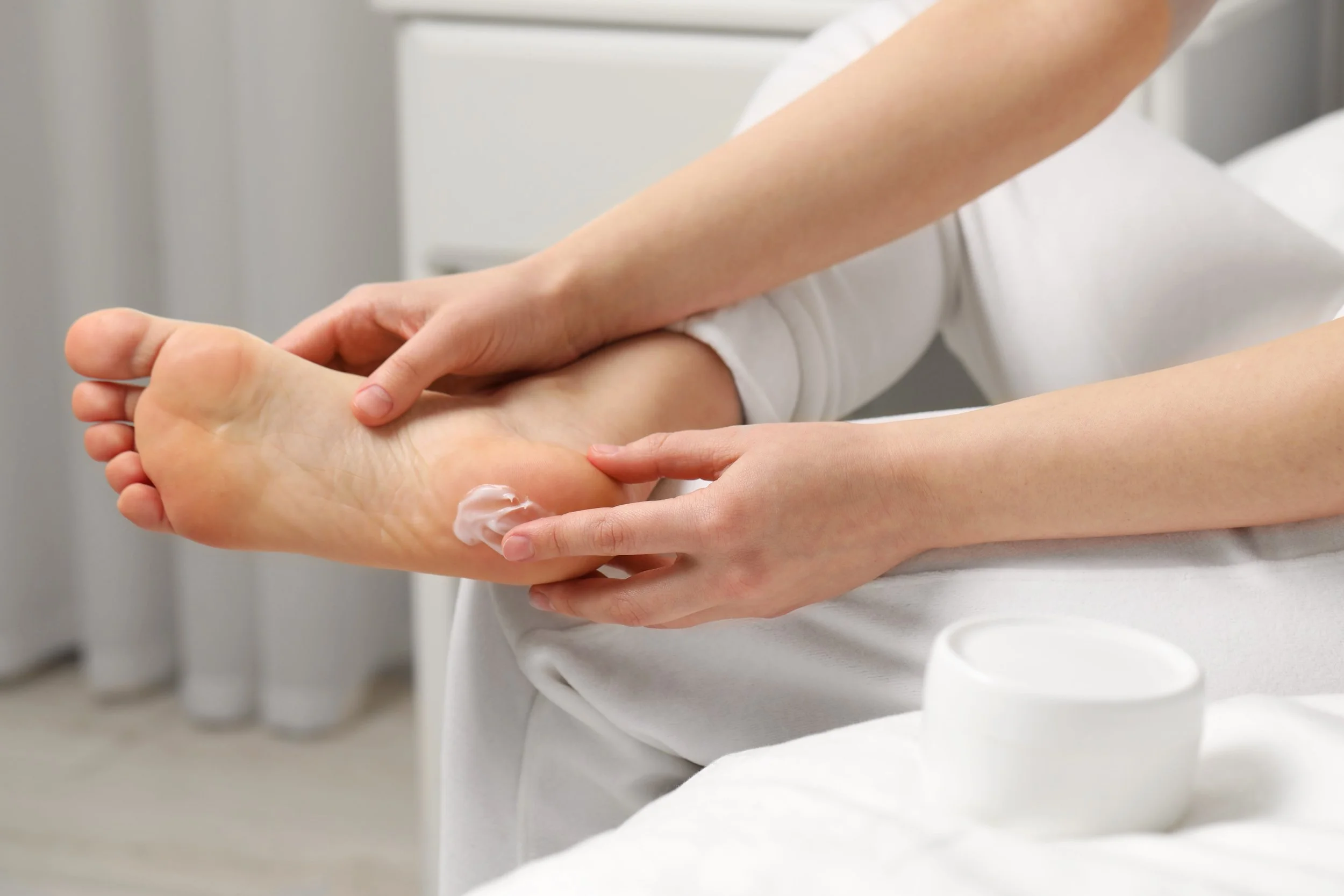Calcaneal Apophysitis
(aka Sever's Disease)
"Sever's" or "Sever's Disease" is a term you may hear around school or at kids' sports, especially at this time of year. However, this condition is not a disease, so the official name – Calcaneal Apophysitis – is a more fitting term to use.
“Calcaneal Apophysitis is a condition seen in particularly active children resulting in intense heel pain that impacts their ability to participate in sports and other physical activities.”
Calcaneal Apophysitis is an inflammatory condition that affects the calcaneus (heel bone) and causes pain.
Heel pain worsens during or immediately after exercise and is relieved by rest. Some children may also develop a limp or suddenly walk on their tip-toes.
Calcaneal Apophysitis initially presents after a growth spurt when the long lower leg bones grow quickly, but the calf muscles do not.
The tight calf muscles – which insert into the calcaneus via the Achilles Tendon – pull on the calcaneus, creating a traction force through the growth plate.
This force causes micro-trauma, leading to inflammation and pain in the calcaneal growth plate. Hence the name, Calcaneal Apophysitis!
What causes Calcaneal Apophysitis?
Repeated force is a significant factor in developing Calcaneal Apophysitis, as tissues cannot recover without time to rest. Therefore the condition is often seen in kids who play sports most days of the week.
Other risk factors include:
Ages 8-to-13 when children are growing rapidly.
High physical activity levels.
High-impact activities, especially running and/or jumping sports.
Tight calf muscles.
Ankle joint restrictions.
Abnormal foot biomechanics.
Footwear with a "negative heel."
At Blackwood Podiatry, we often see Calcaneal Apophysitis during the football season.
Traditional football boots are "negatively heeled," meaning that the heel sits lower in the boot than the toes. This position increases the Achilles Tendon's pull on the calcaneus, creating traction forces through the heel growth plate.
When your child has a growth spurt, this force increases further, and heel pain symptoms suddenly appear.
Thankfully, several brands are now making select kid's football boots without negative heels.
“As well as football boots, some other types of shoes have a “negative heel” effect. We’ve recently seen this in girls wearing a particular brand of summer sandal!”
Calcaneal Apophysitis Treatment
Book your child to see a podiatrist as soon as they complain of heel pain so their issue can be expertly assessed and diagnosed.
Once a diagnosis of Calcaneal Apophysitis is confirmed, treatment focuses on reducing inflammation and pain.
One of the first things your podiatrist will do is to reduce the load through the tissues, known as "de-load." This can be done by:
Short-term rest from sports/activities to allow the tissues to recover.
Adding a heel raise to the shoe reduces the pull through the Achilles (essential in those negatively heeled footy boots!). This is only used in the short term to reduce pain levels and should only be worn under your podiatrist's supervision.
Taping the foot and leg in a way that helps to reduce the force impacting the heel may be helpful in some cases.
A footwear assessment is crucial in managing Calcaneal Apophysitis. Your podiatrist will assess the heel pitch and check to see if your child's shoe provides adequate support. There are now specific football boots on the market with a 10mm heel gradient built to combat Calcaneal Apophysitis in children. These boots are always recommended for kids to wear on the footy field/soccer pitch.
Anti-inflammatories and/or ice therapy may decrease pain in the short term.
It is essential to de-load the heel in conjunction with stretching and strengthening exercises, which your podiatrist will go through with you in great detail (and set as homework!).
And finally, if foot biomechanics is a contributing factor for your child, we may need to address this through prescribed orthoses.
Calcaneal Apophysitis is a severely painful condition that can be frustrating for kids who want to get out there and play! Therefore, the quicker you see a podiatrist and get help, the better.
Please click here to access our Football Resources webpage and learn more about choosing the right football boots for your child.









